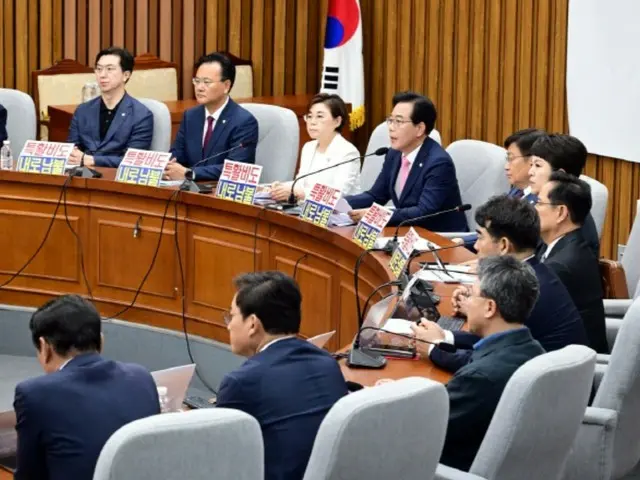On the 4th, Joo Jin-woo, a lawmaker from the opposition People Power Party, said that based on the principle of reciprocity, foreigners will be allowed to purchase real estate for actual residence, but not for speculative purposes.
According to the South Korean Ministry of Land, Infrastructure and Transport, as of the end of last year (2024), the number of people who own homes in South Korea is 10,000.
The number of foreigners in the country was 98,581, and the number of homes owned by foreigners was 100,216. This is an increase of 5.5% and 5.4% respectively compared to the first half of last year. Among them, the number of Chinese homeowners was 56,301,
Currently, Korean nationals are subject to a mortgage loan limit of 600 million won (approximately 63 million yen) regardless of the price of the home, and they are only allowed to borrow up to 6 months after the loan is taken out.
However, these regulations do not apply to foreigners, and criticism has been raised that this is "reverse discrimination against Chinese nationals."
In principle, Chinese nationals are prohibited from purchasing land, and are only allowed to purchase residential property if they have resided in China for more than one year.
The amendment bill proposed by Representative Shu includes the following:
When foreigners purchase real estate in Japan, they will be required to stay in the country for at least one year and to move in within six months, in order to prevent speculative purchases.
In order to ensure fairness with Korean citizens, foreigners must invest at least 50% of their own funds when purchasing real estate and provide proof of this.
The government will flexibly apply the areas and countries where foreigners are permitted to do real estate transactions and set this by presidential decree to ensure reciprocity.
In addition, Rep. Kim Eun-hye, who serves as the National Assembly's deputy policy leader for the People's Power Party, also proposed the creation of a law banning reverse discrimination against real estate, which would clarify the principle of reciprocity for foreigners acquiring real estate.
Kim was the lead sponsor of the amendment to the Transaction Reporting Act. His amendment would enshrine the principle of reciprocity directly in law, rather than in a presidential decree, and require foreigners to report their real estate transactions when they acquire or transfer real estate in Korea.
The bill will force foreigners to apply the same level of restrictions as the government imposes on Korean citizens. In addition, it will change the method for foreigners to acquire and hold real estate from the current simple declaration system to a "prior permission system" and require foreigners to obtain the property through the jurisdiction.
The Ministry of Land, Infrastructure, Transport and Tourism has stipulated that it will conduct a survey and publish at least once a year on the status of compliance with the reciprocity principle regarding the acquisition and ownership of real estate by foreigners.
In addition, Rep. Kim Mi-ae and Rep. Go Dong-jin of the same party have also proposed a new real estate transaction reform bill, the main points of which include a prior approval system and strengthening the principle of reciprocity.
The party has submitted a bill to amend the loan reporting law. Song Eon-seok, the party's emergency response committee chairman and floor leader, said at a general assembly of lawmakers held in front of the presidential office on the 1st, "The Korean people are in a hurry to face the sudden restrictions on loans.
"The new law came into effect in just one day, but the loan restrictions do not apply to foreigners, including Chinese," he said. The People's Power is a task force working to address the Lee Jae-myung administration's real estate policies.
The government plans to proceed with the establishment of a Task Force (TF) and continue related discussions.
2025/07/07 04:53 KST
Copyrights(C) Herald wowkorea.jp 104

